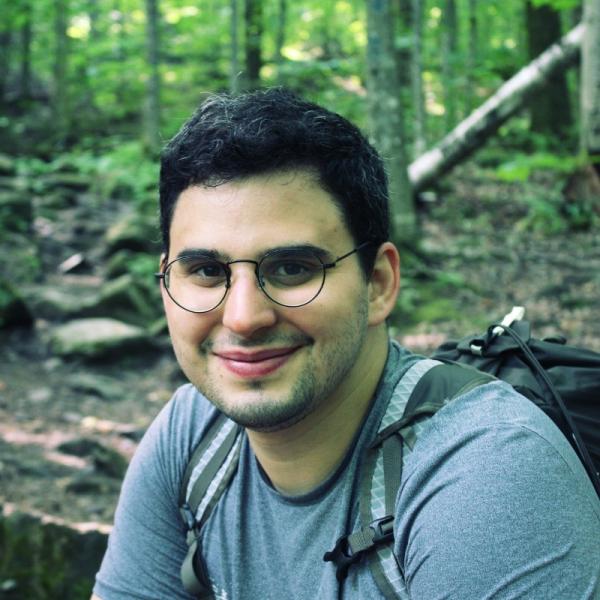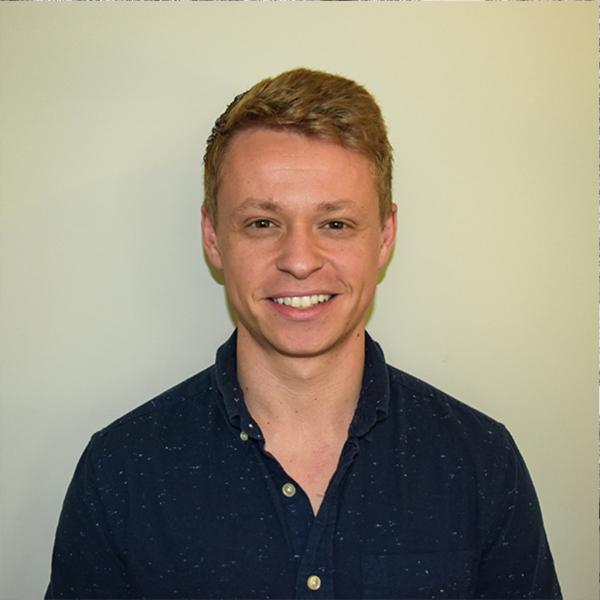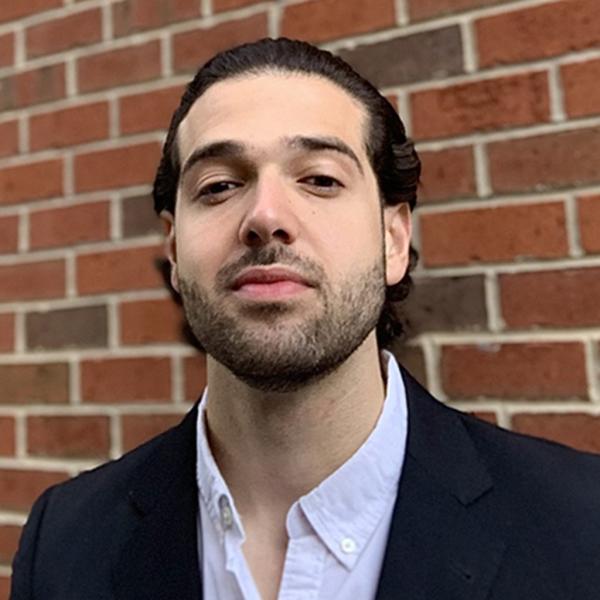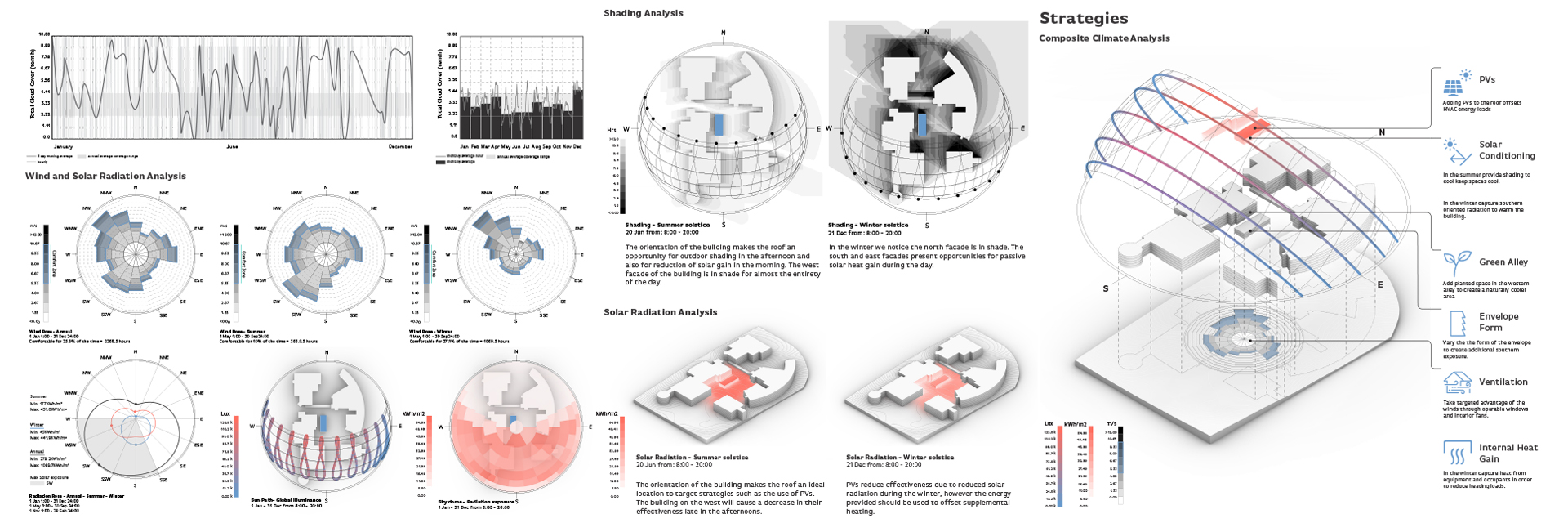
Building Science
Building Science
The Building Science group concentrates on the interdisciplinary research of physical phenomena in the built environment. We aim to provide more understanding of building energy usage and occupant comfort through the application of physics-based and data-driven approaches. Our research is a tool to inform designers, engineers, and building managers on the realities of their designs to better inform decision-making and design optimization processes.
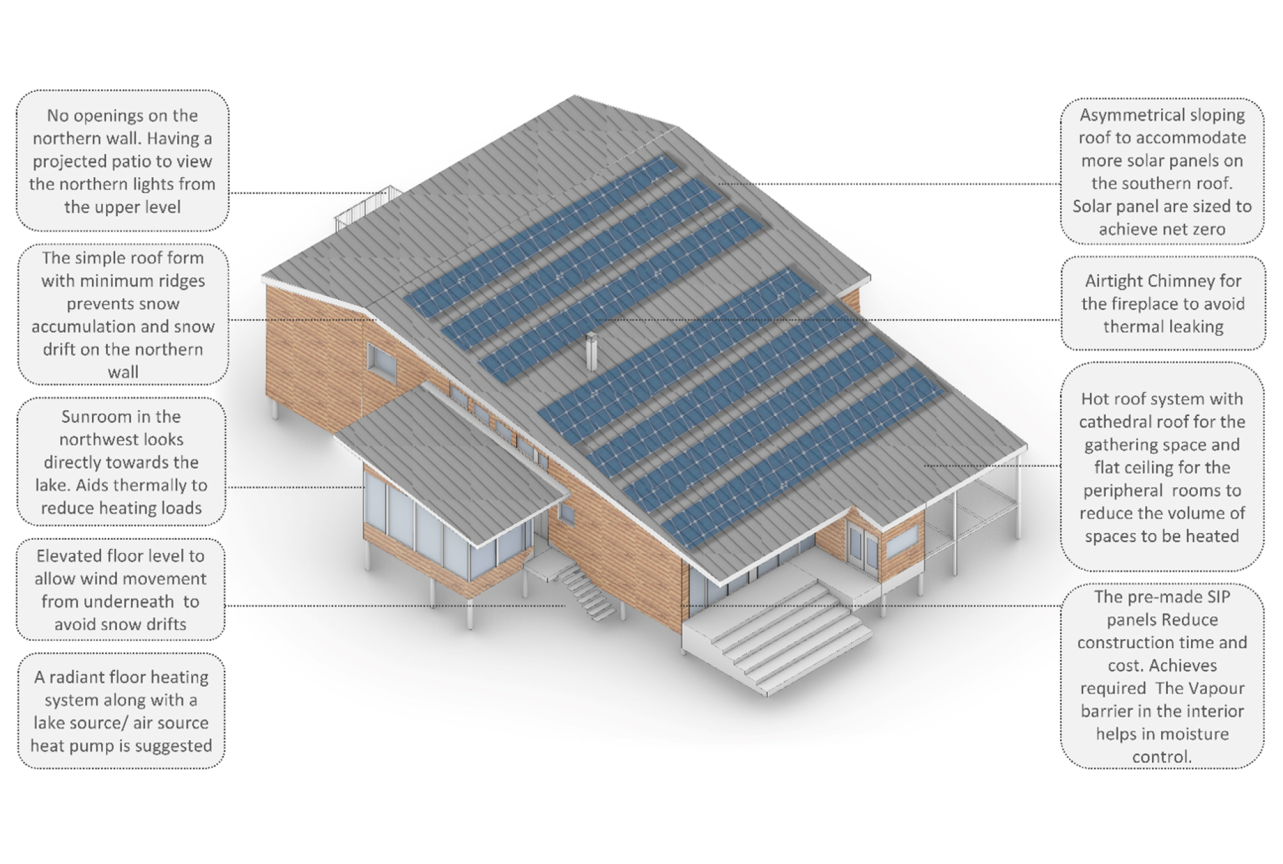
A More Climate-Resilient Native American Architecture
With the increasing effects of climate change, Native American communities are being impacted adversely due to their high dependence on land and the ecosystem. Even though Indigenous people have always respected nature, followed sustainable practices, and minimally contributed to climate change, they are currently more vulnerable to extreme climatic conditions. Indigenous people have built climate-responsive buildings and passed their vernacular knowledge to their future generations; however, the efficiency of traditional styles has been reducing over time and does not remain as effective with the changing climate. It is necessary to integrate advanced building technologies with the vernacular architecture of Native Americans to construct climate-resilient buildings. This research paper suggests some climate resilient design strategies formed by a group of architects and building scientists from across the world (Egypt, India, Iran, Mexico, and USA), trying to help Native American communities in Alaska fight climate change after being approached for a cultural centre project in Tyonek, Alaska. Taking that as a case study, this paper aims to combine Indigenous people’s cultural and architectural practices with advanced green building technologies and quantify the resilience of the buildings against harsh climatic conditions such as cold drafts, extreme temperature, humidity, and moisture using simulations.
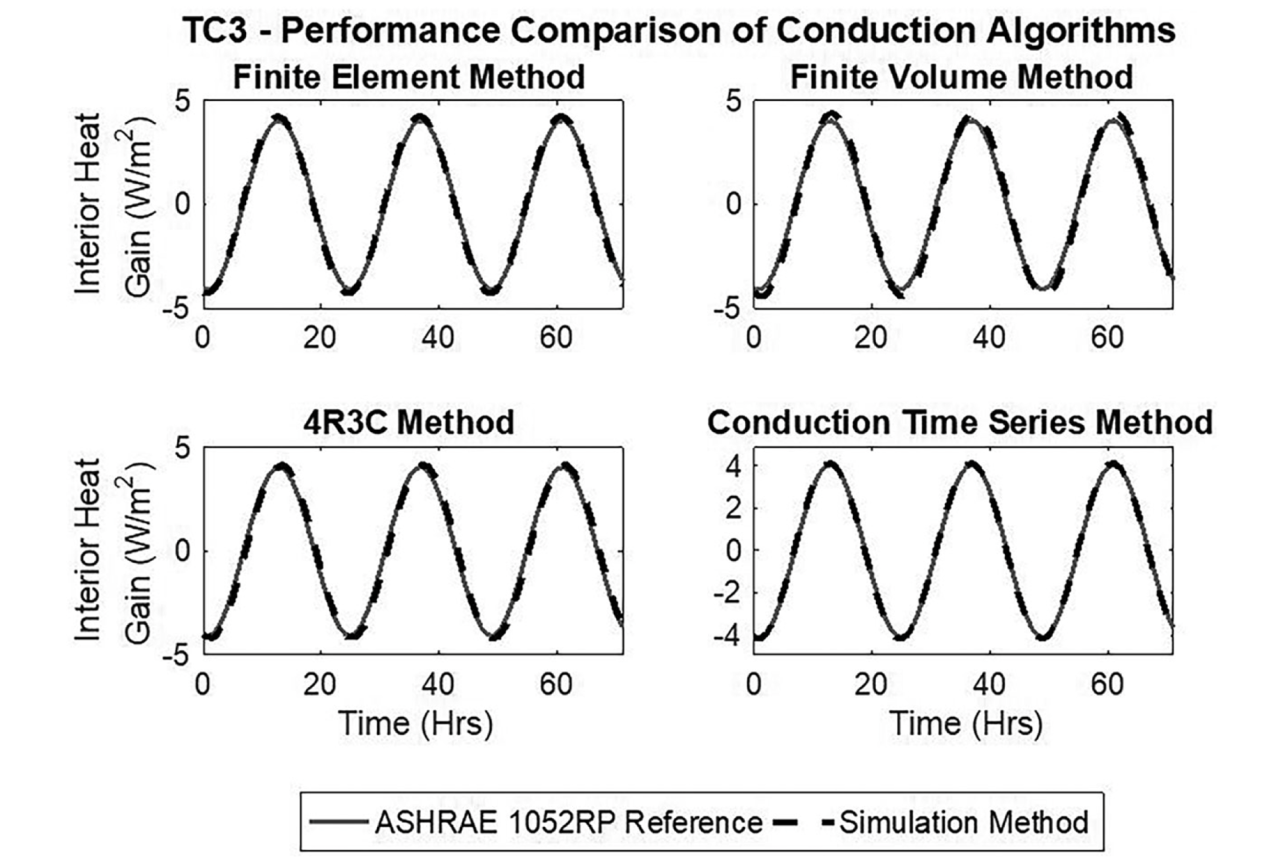
Modeling of Transient Conduction in Envelope Assemblies
A Review
As buildings age, retrofits are becoming an increasingly important topic for the ever-growing and aging existing building stock. To compare designs or evaluate in-service building envelopes, thermal modeling is utilized to evaluate the thermal performance of envelope assemblies; however, it can be difficult to model the thermal performance of as-built assemblies due to degradation or missing documentation. To address this issue, transient thermal modeling can be applied to infer the properties of as-built envelope assemblies. This paper presents a review of the literature and published methods to model and infer the transient conductive performance of building envelopes. This review serves as a survey of existing transient conduction algorithms to evaluate performance, computational speed, and relevance for inverse modeling applications. In addition to the literature review, this work also evaluates the computational performance of the most prevalent transient conduction algorithms against the ASHRAE 1052-RP toolkit to assess inverse modeling potential.
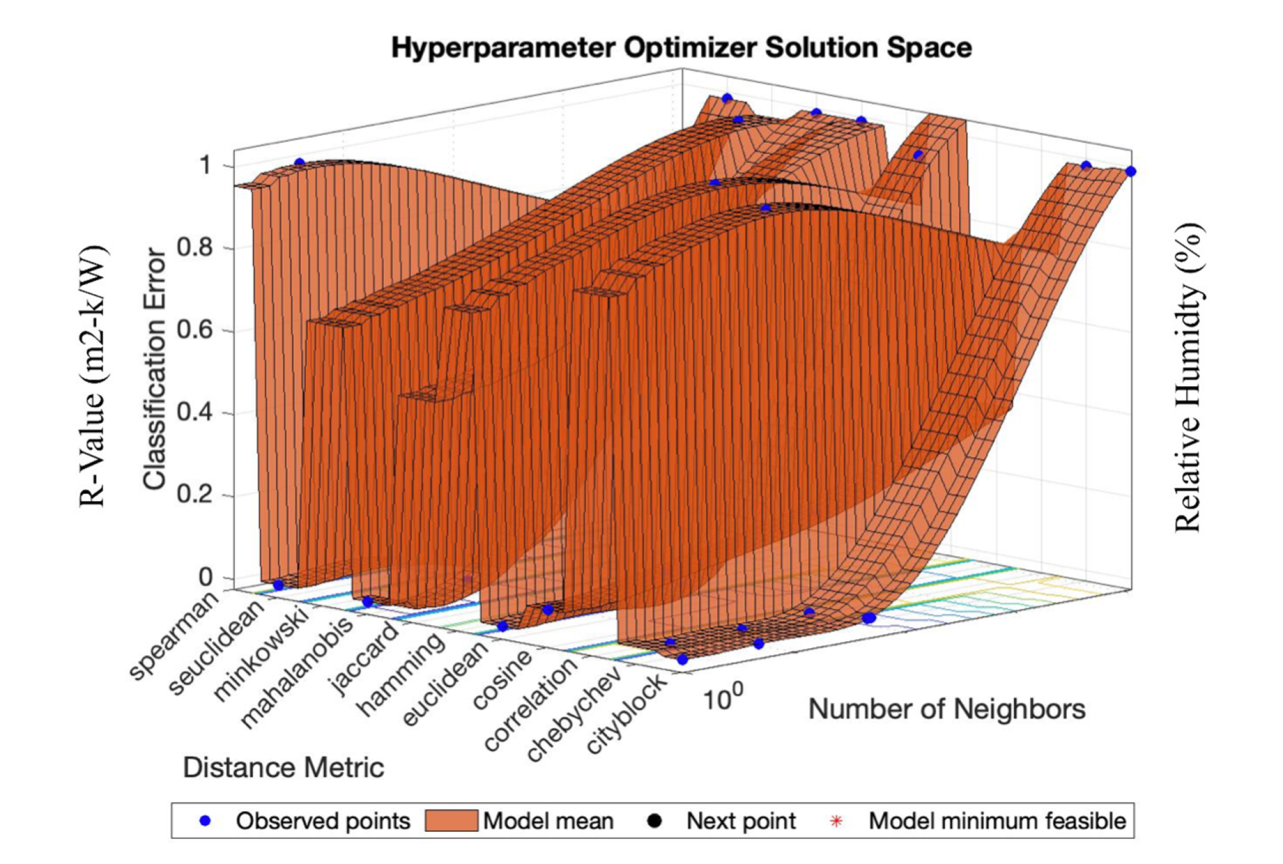
Predicting Building Envelope Construction
From In-Situ Thermal Testing
When embarking on a retrofit of a building envelope, it is extremely important to understand the composition of the assembly. This practice is currently done by destructive and invasive material testing or demolition, which is sometimes not possible when in historic or protected buildings. To address this problem, in-situ thermal testing can be utilized along with machine learning classification algorithms to infer the composition of an assembly. In this paper, a proof-ofconcept K-nearest neighbors classification model is developed to classify assembly composition from effective thermal resistance, effective thermal mass, and assembly cladding. This model was trained and tested utilizing a synthetic dataset producing an F1-score of 94.6%. This model was also validated with experimental data from a 100-year old wall assembly, confirming the model’s real-world validity. This study serves as a framework for inferring as-built envelope assembly composition, all without having to damage or disturb the building.
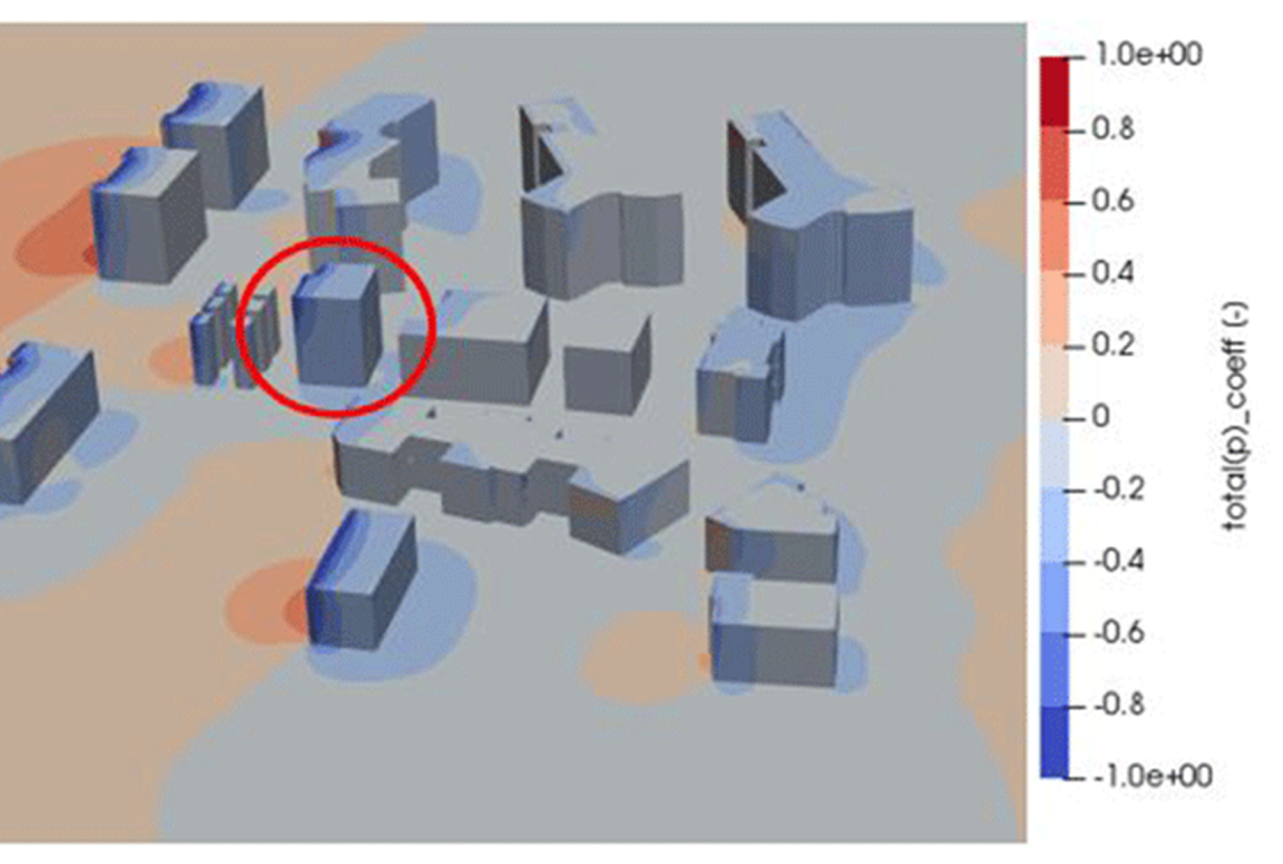
Overheating Assessment in Passivhaus Dwellings
The Influence of Prediction Tools
Thermal comfort during the summer in the Passivhaus concept relies mainly on natural ventilation to provide indoor cooling. Do airflow modeling tools accurately predict overheating in summer and for anticipated warmer climates? What effect do simplifications of airflow modeling techniques have on the overheating assessment of Passivhaus dwellings? Measured data and a calibrated thermal model are employed in the present study to address this question. The calibrated model is then used to create a standalone building energy model (BEM), a BEM coupled with an airflow network model (AFN), and a BEM coupled with an AFN supported by the wind pressure coefficients obtained from computational fluid dynamics (CFD) simulation. The outcome of each modeling approach was then compared against each other within three different European climates. Results showed that the overheating frequency prediction found with the default design infiltration and natural ventilation inputs commonly used in the literature agreed fairly with those obtained from the AFN + CFD in temperate or colder climates (< 2% difference), but were significantly underestimating overheating in Passivhaus buildings located at warmer climates (9.4% difference). For Passivhaus dwellings in warmer climates, the airflow modeling approach is unlikely to provide for an accurate estimation of the overheating incidence.
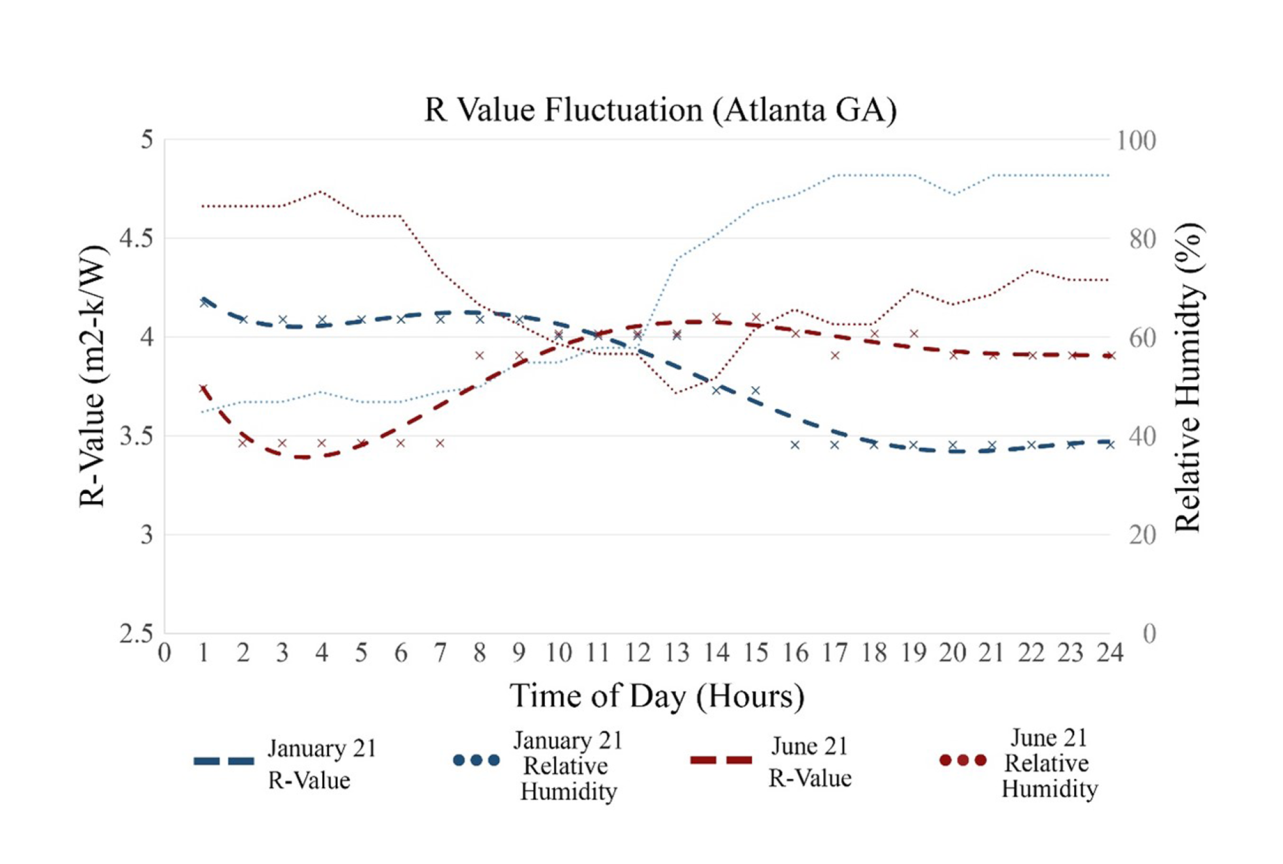
Deteriorate
A Model to Simulate Envelope R-value Fluctuations in Natural Porous Insulation
As the threat of climate change is exacerbated by increasing energy demand and the carbon emissions linked to it, driving down energy consumption is a goal that building professionals must seek to prioritize due to the key role that buildings play in global energy consumption. The use of insulation to drive down building energy consumption is an effective strategy in climates where a large temperature variation exists between indoor and outdoor conditions. Natural-based insulations, which are typically porous, offer an insulation solution with low to negligible embodied energy. The porosity of these materials however can decrease thermal performance due to moisture build-up. Due to the need to employ these materials more commonly and to anticipate their behavior for more informed decision-making, we propose a computationally efficient model that discretizes porous insulation into three distinct layers: Solid, Air, and Moisture. The model associates moisture build-up in the pores using material-specific Sorption Isotherms. We run a simulation using our model on a building utilizing cellulose insulation. Results show that the model is validated by matching experimental data reported by other authors in terms of thermal conductivity and R Value changes. Comparing the outcome to experimental values shows promise in mimicking thermal conductivity fluctuations in porous materials.
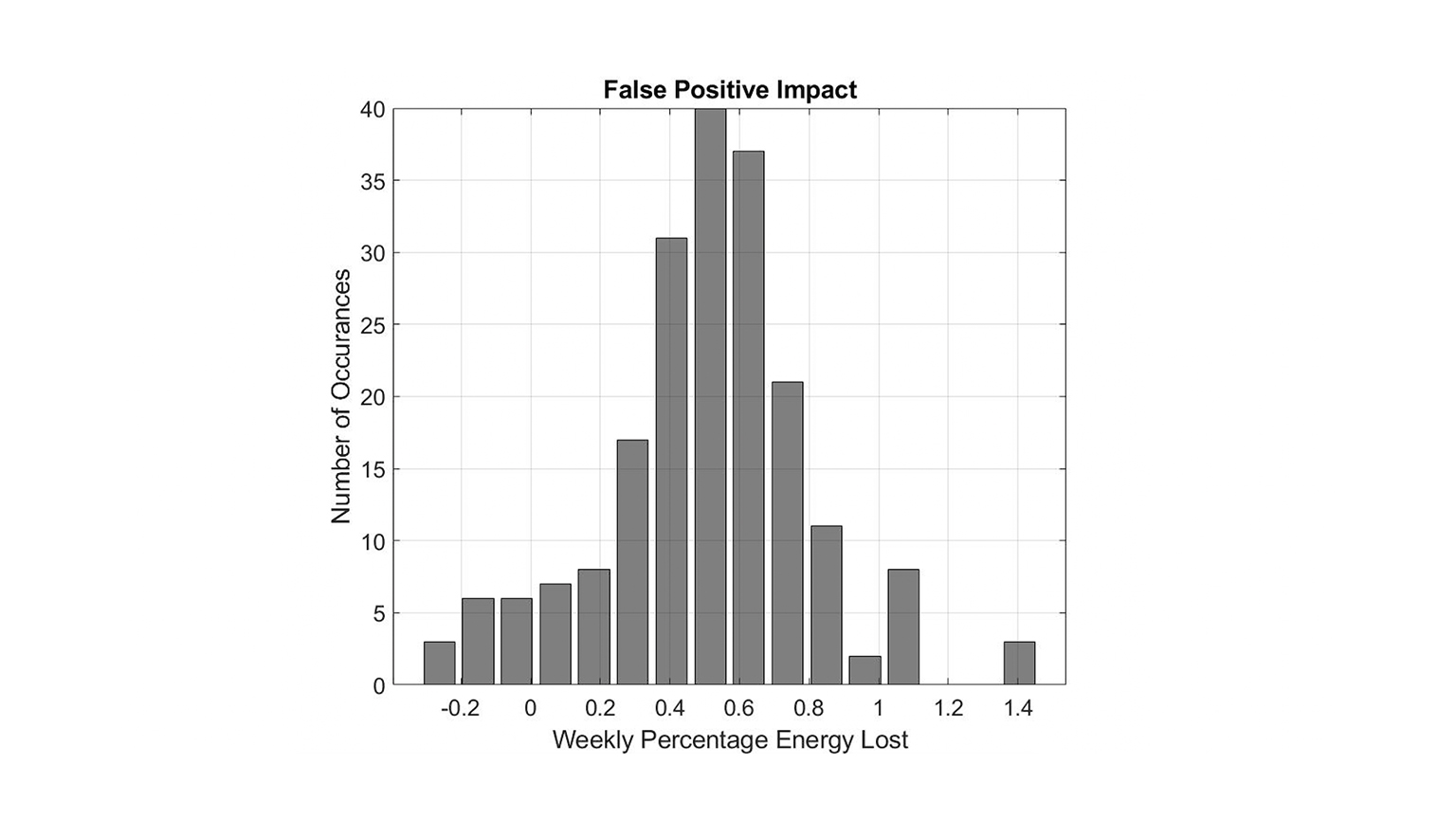
Diverse Occupancy and Presence Sensing Technology
A Framework to Simulate Diverse Occupancy and Presence Sensing Technology to Regulate Heating and Cooling Energy in Residential Buildings
With the rapid progression of human sensing technologies, High Performance Buildings are inevitably moving towards the wide-scale automation of occupancy detection for energy efficiency purposes. Occupancy patterns influence energy consumption in buildings by governing the Heating, Ventilation and Air Conditioning (HVAC) systems to regulate indoor comfort. The integration of emerging sensing systems in residential buildings requires low-cost, low-resolution alternatives that might be subject to inaccuracies and result in errors. This project adopts a simulation-based workflow to examine the impact of system sensing errors, like human false sensing, using occupancy schedules to quantify energy loss.
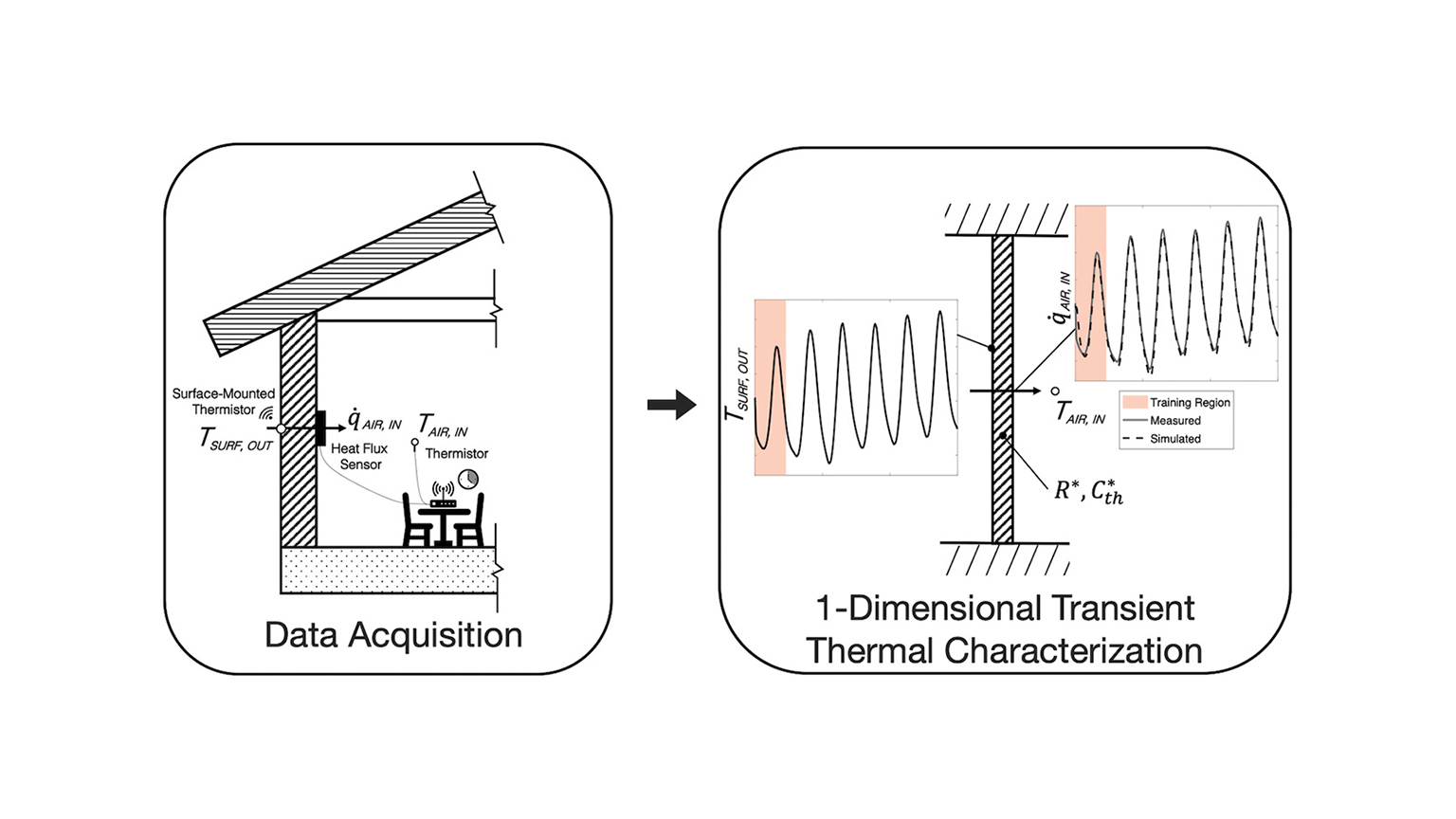
Towards Understanding an Imperfect Built Environment
A Methodology for In-Situ Characterization of Building Envelope Thermal Performance
As buildings age, retrofits are becoming an increasingly important topic for the ever-growing and aging existing building stock. Following construction, a building's energy footprint typically remains relatively stagnant, effectively locking-in that building's energy usage for its lifetime. The goal of this work is to utilize the power of thermography and transient heat transfer modeling to non-intrusively characterize the thermal properties of a building's envelope to inform energy modeling, facade design, and project appraisal.
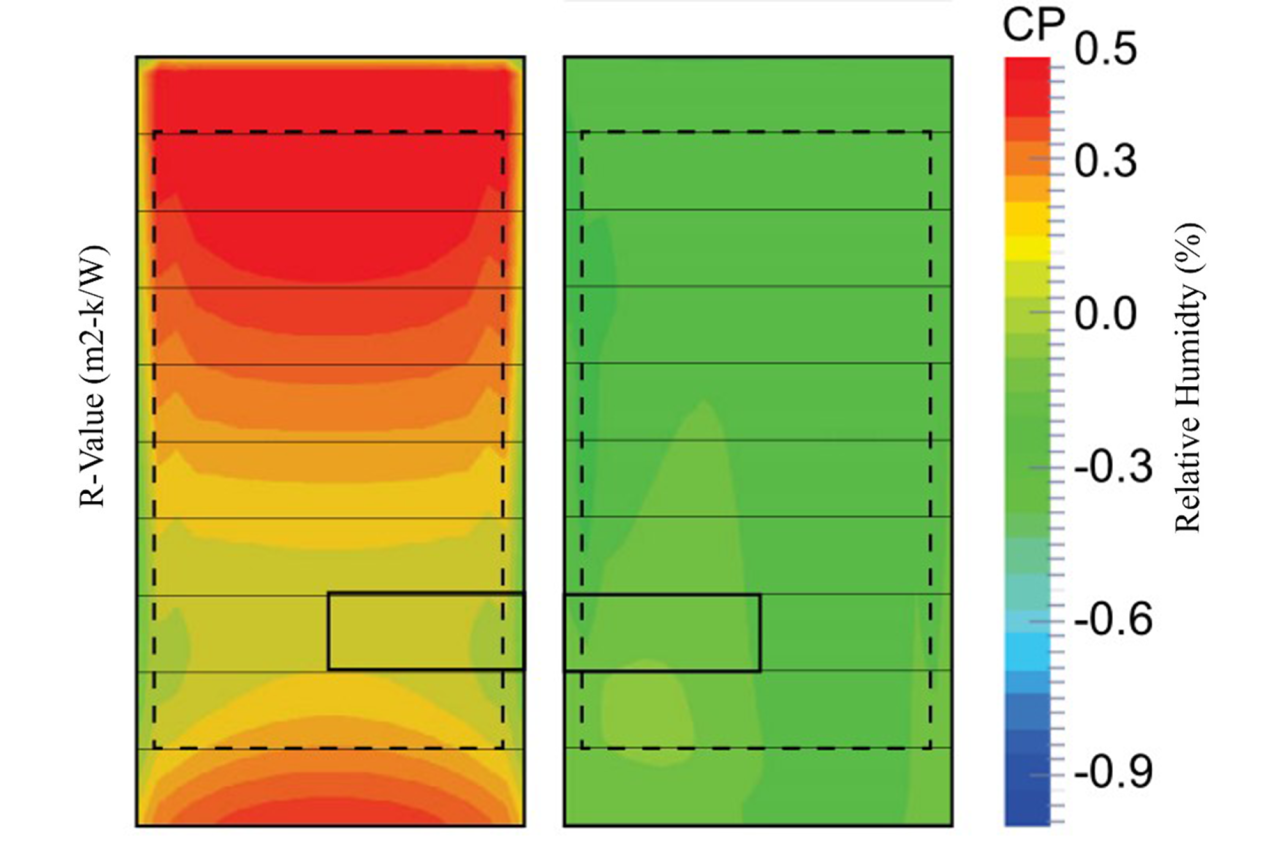
Streamlined CFD Simulation Framework
To Generate Wind-pressure Coefficients on Building Facades
Building energy modeling software generally comes with capable airflow network solvers for natural ventilation evaluation in multi-zone building energy models. These approaches rely on pressure coefficient arrays representing different wind directions derived from simple box-shaped buildings without contextual obstructions. For urban or obstructed sites and more complex building shapes, however, further evaluation is needed to avoid geometric oversimplification. In this study, we present an automated and easy-to-use simulation workflow for OpenFOAM-based exterior airflow simulations to generate pressure coefficient arrays for arbitrary building shapes and contextual situations. The workflow is compared to other methods commonly used to obtain pressure coefficients for natural ventilation analysis. Finally, we assess for which climate zones and building types modelers should rely on more accurate CFD-based pressure coefficients and where it may be justifiable to rely on easier and readily available analytical approaches to determine pressure coefficients. Results suggest that existing workflows lead to significant error in predicted comfort hours for climates in the global South and modelers should consider CFD based façade pressure coefficient.
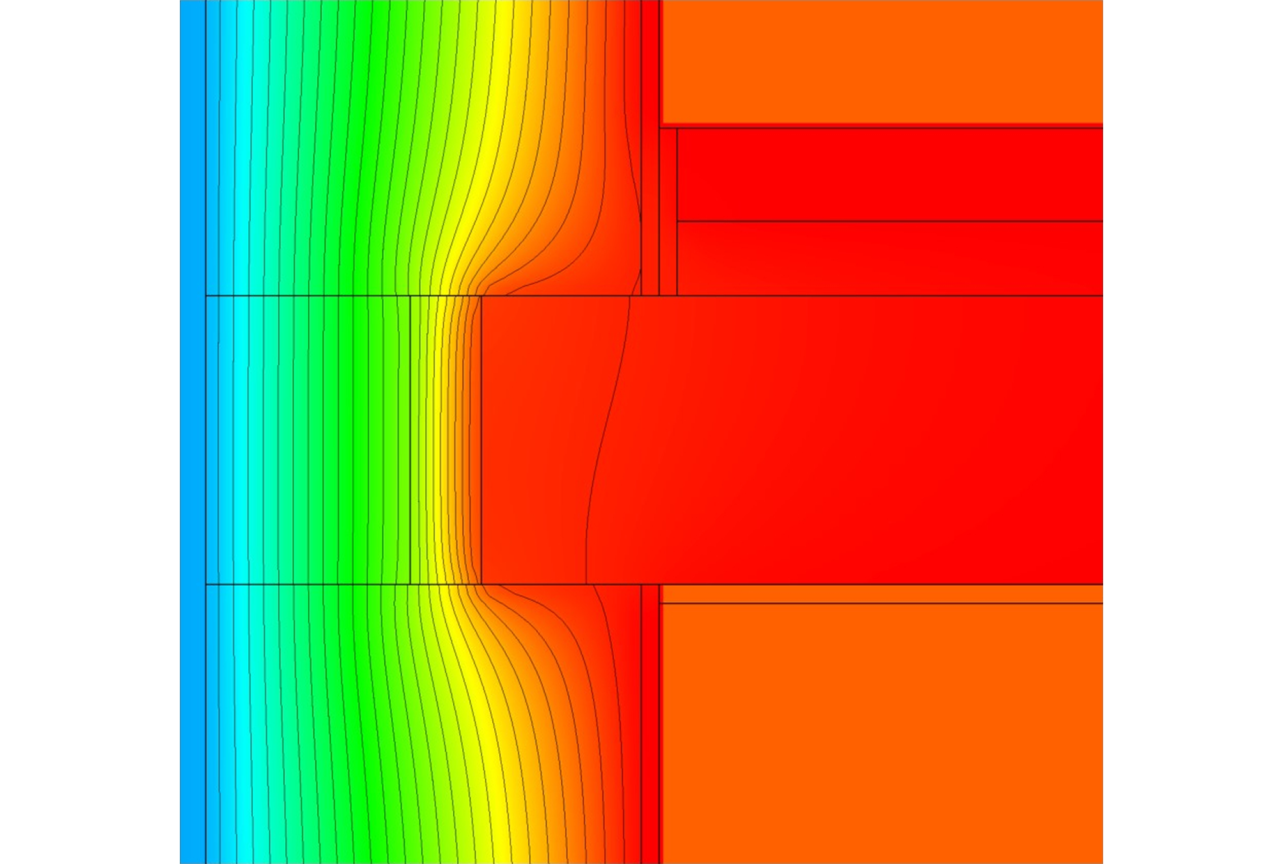
Heat Transfer for Architectural Applications with OpenFOAM
Although recent advancements in computational architecture show promising capabilities, it remains difficult for architects to conduct advanced simulations due to the limited software interoperability. For thermal bridging analyses, the architectural community traditionally relies on specific software tools that are not integrated into a CAD environment. To integrate such analyses into the ongoing design process, we implement a software tool to run heat transfer simulations with OpenFOAM from Grasshopper and Rhinoceros. This paper presents an implementation for box-shaped geometries and compares its results to a thermal bridge analysis from a validated simulation engine. We show that OpenFOAM’s chtMultiregionFoam solver is capable of accurately predicting temperature distributions in a geometry setup with 13 different regions and 8 different materials. In conclusion, we show that heat transfer studies can be highly automated and integrated into an iterative design process.
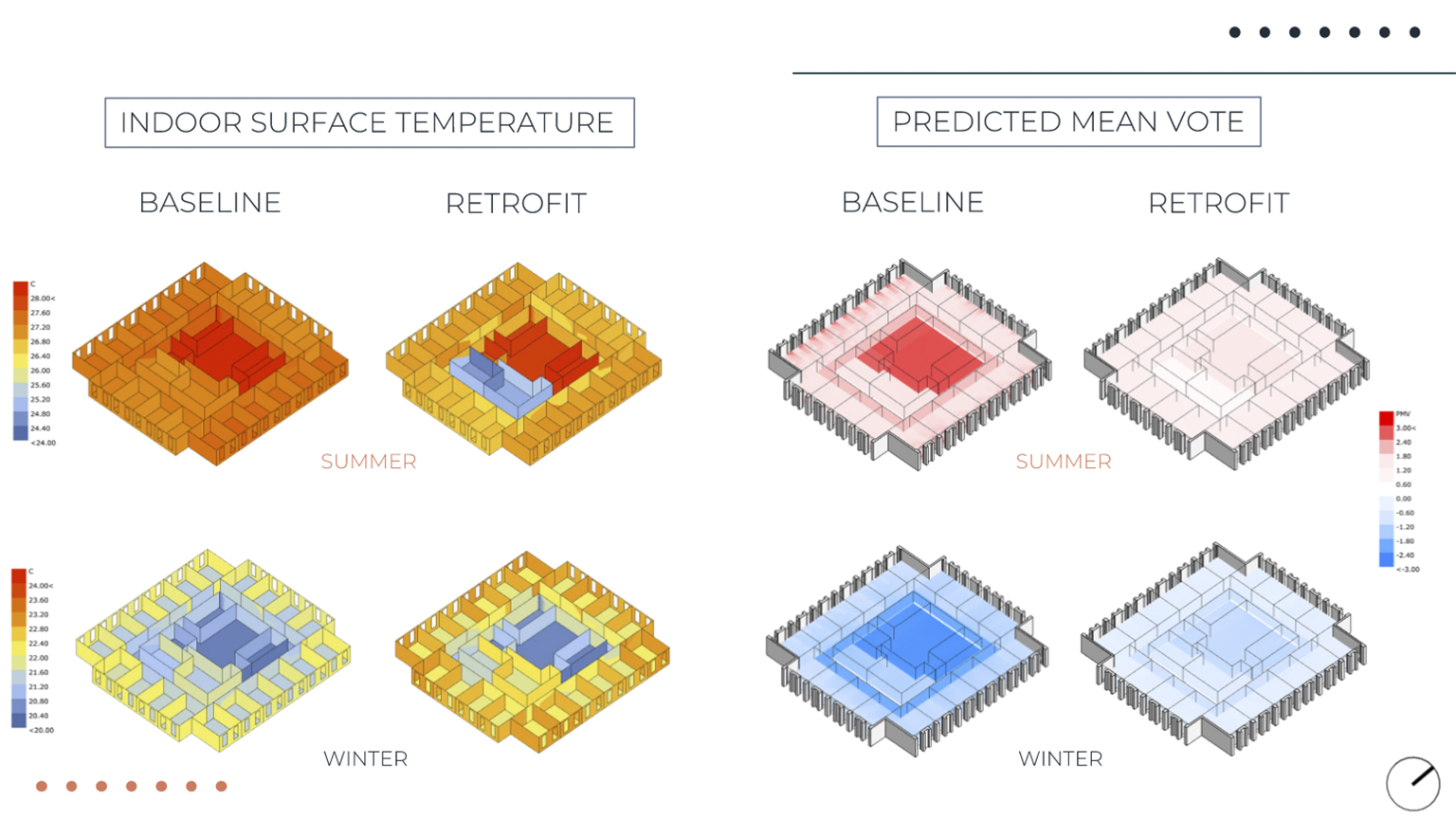
Master's Capstone Project by Madison Prince
A Comprehensive Retrofit Analysis and Optimization of Thermal Comfort and Energy Use in an Existing Academic Residence Hall Building
American academic campuses are in flux and attract students who are primarily living away from home for the first time. However, almost half of the United States’ built environment was constructed before 1970, meaning existing buildings will continue to age and deteriorate unless retrofits are applied to resolve this inevitable problem. This project identifies the crucial energy losses within an existing campus residence hall as a base case and provides two alternative retrofit solutions for optimal energy efficiency goals as a side-by-side comparison.
Questions?
Contact Us



